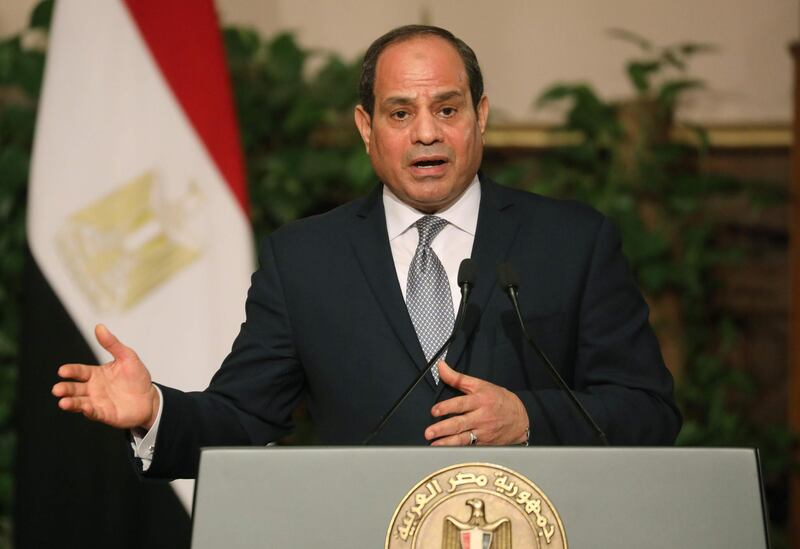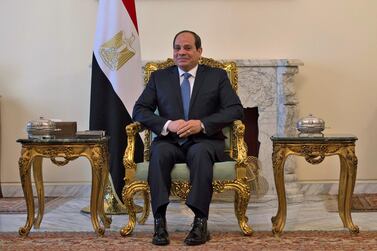Proposed changes to Egypt’s constitution that would allow President Abdel Fattah El Sisi to remain in office for another 15 years and expand his powers have been opposed by politicians, rights campaigners and commentators.
They view the changes as an attempt by Mr El Sisi to establish authoritarian rule.
However, given the small number of independent and opposition politicians in the 596-seat parliament, the government’s intolerance of dissent, tight media control and a de facto ban on demonstrations, the changes are almost certain to be adopted.
The most significant amendment is the extension of presidential terms from four to six years, while maintaining the two-term cap stipulated in the present charter.
As a one-off tailored for Mr El Sisi, a provisional clause has been proposed to allow him to run again in 2022 and 2028 for a third and fourth term.
Barring unforeseen developments and provided that the former army chief is willing, the Egyptian president could remain in office until 2034, when he will be about 80.
The proposals also give the military the role of guardian and protector of the state, democracy and the constitution.
If the proposals are adopted, that would enshrine a political role for the military with veto power over policies.
The amendments also give Mr El Sisi a large measure of control over the judiciary and will empower him to appoint top judges, including the head of the Supreme Constitutional Court.
The proposals will also make him president of a new judicial council that will run the affairs of the judiciary.
Parliament appears to be determined to push on with the changes quickly.
The house’s most powerful panel, the General Committee, approved the amendments last week, just two days after they were submitted by a coalition of politicians loyal to the president.
The house plenary will debate the committee’s report this week and, if adopted, refer it to the legislative committee, which will have two months to discuss the amendments before sending them back to the full house for a final vote.
Opposition to the changes has so far been restricted mostly to Facebook posts, tweets and a small number of newspaper articles written with caution.
A coalition of small and largely ineffective secular and liberal parties has vowed to challenge the amendments in court and create a media forum for lobbying against them.
Independent lawyers are already challenging authorities over the issue in the administrative court.
Mohammed Zaree, a rights lawyer, said any meaningful opposition to the amendments had to come from within the ruling establishment or Cairo’s backers in the West.
The timing of the proposals – it is more than three years before Mr El Sisi’s second term expires – reflects a desire by the government to ratify them at a time of relative domestic stability and before parliament’s term ends next year, he said.
Mr Zaree said that the US was focused on their own interests when it comes to foreign policy, while Europe was concerned primarily with the fight against extremism and illegal migration from the Middle East and Africa.
“Amending the constitution is not an easy thing to do, it needs perfect timing – that is now,” he said.
Public criticism of the amendments outside social media has been cautious.
Amr Moussa, the former foreign minister and Arab League chief who led the 50-person panel that drafted the constitution, called for a national dialogue on the proposed changes, and demanded that parliament’s hearings on the issue be broadcast in full.
He said that politicians had a duty to focus on long-delayed laws that complement the constitution or execute its clauses, rather than changing the document.
“Nothing should be forced on anyone,” Mr Moussa said.
Proponents of the changes say they are needed to protect the country’s stability five years into Mr El Sisi’s rule.
They insist that the four-year presidential terms under the current constitution do not allow Mr El Sisi the time he needs to complete his drive to modernise infrastructure and revive the economy.







